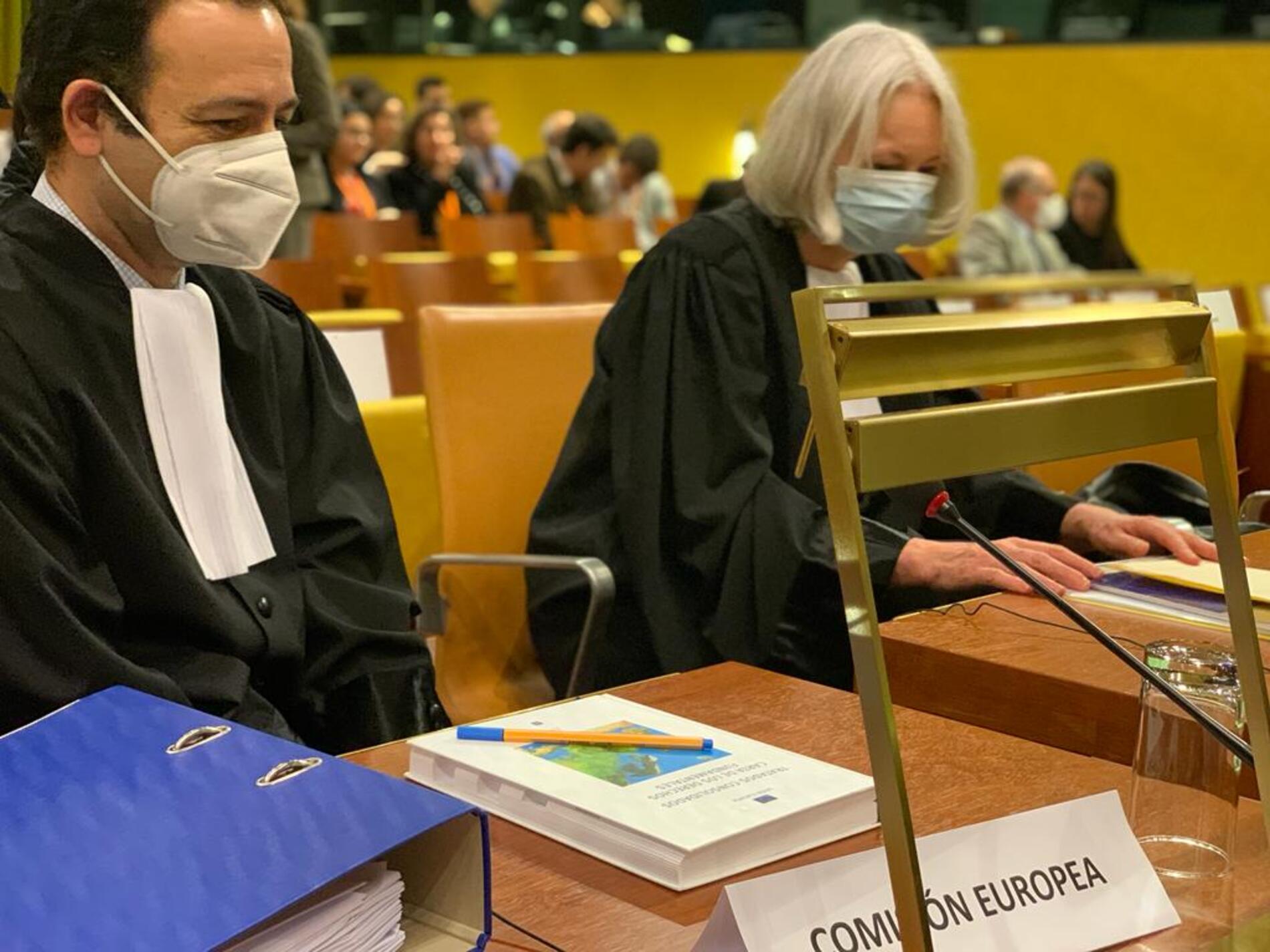There were moments of surprise at today's session of the European Court of Justice in Luxembourg. At the court session, dealing with the preliminary questions put by Spanish judge Pablo Llarena with regard to the European Arrest Warrants (EAWs) he issued for the exiled Catalan pro-independence leaders, all the parties involved in the case were able to make submissions. The first action that raised eyebrows was when the lawyer representing the Kingdom of Belgium, F. Matthis, now distanced itself from the report made by the Belgian Court of Appeal, which had argued that it did not approve of the handover of former Catalan culture minister Lluís Puig to Spain, considering that his rights could be violated and that the Spanish Supreme Court is not the competent court to try him. The Belgian lawyer stated: "The Kingdom of Belgium has no intention of making any statement on a court decision, as that would be in breach of the principle of separation of powers." European Commission lawyer Julio Baquero criticized the change of opinion, noting: "There are no systemic problems in Spain and Belgium says so."
The lawyer for the Kingdom of Belgium gave the view that the "organic independence of the judiciary is based on the principle of separation of powers" and that it is for "the member state's judge to assess the evidence presented by the parties in the context of his or her sovereign [judicial] exercise”. On the other hand, the report presented to the European Court of Justice (ECJ) by the Belgian courts gives a very strong opinion on the possible violation of Puig's rights if he had been handed over to Spain, and for this reason it refused his extradition in January 2021. The Advocate General of the ECJ also asked the Belgian lawyer about this change of approach.
Two steps to a violation
For his part, the lawyer representing the European Commission at the hearing made a clear and incisive speech. Julio Baquero explained that Union law clearly states that there are two steps required to show a violation of rights: first, that a “systemic problem” is detected in the country and, secondly, that the specific case is analyzed. He added that it is the case of Lluís Puig, and not those of the rest of the Catalan politicians in exile, which is being reviewed at the hearing. The lawyer also showed his opposition to the stand taken by the Belgian courts, saying that "they assume the power to add new unlimited grounds for rejecting an EAW, when the European Court has already listed the reasons". He also proposed that the European court should allow a review of the cases in order to refuse arrest warrants when there are "exceptional reasons". He added that there was no contradiction between the rulings of the ECJ and the European Court of Human Rights (ECHR) and that "if there are no [problematic] systemic elements at present, neither [should there be] in the future".
Spanish state solicitor
Earlier, the legal representative of the Spanish state, Andrea Gavela, spoke, defending the role of the EAWs and asserting the importance of the preliminary questions presented by judge Llarena, which, according to her, go beyond this procedure since, she asserted, that what is at stake is that this tool could end up becoming inoperable. "It is not necessary to point out the importance of the procedure for the present preliminary questions for Spain," she added. The state solicitor backed the need to demonstrate a general deficiency in the judicial system in order to be able to deny the European warrant, and considered the report of the United Nations Working Group on Arbitrary Detention insufficient to prove the violation of fundamental rights, which Puig presented to the Belgian courts as evidence for refusing his handover.
The hearing was adjourned at one o'clock in the afternoon and was to resume with questions from the Advocate General of the ECJ, Jean Richard de la Tour, who was particularly interested in clarifying the powers that the Spanish Supreme Court have and issues relating to the so-called “individual group,” referring to the organizers of the October 1st 2017 referendum in Catalonia, and not an ethnic minority, as some of the exiles’ lawyers wanted to clarify.

